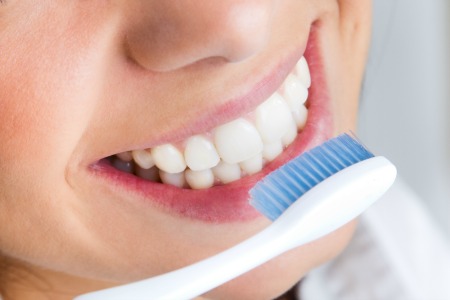
by Visivo | May 29, 2019 | Uncategorized
Your oral health is more important than you might realize. Get the facts about how the health of your mouth, teeth and gums can affect your general health.
By Mayo Clinic Staff
Did you know that your oral health offers clues about your overall health — or that problems in your mouth can affect the rest of your body? Protect yourself by learning more about the connection between your oral health and overall health.
What’s the connection between oral health and overall health?
Like many areas of the body, your mouth is teeming with bacteria — most of them harmless. Normally the body’s natural defenses and good oral health care, such as daily brushing and flossing, can keep these bacteria under control. However, without proper oral hygiene, bacteria can reach levels that might lead to oral infections, such as tooth decay and gum disease.
In addition, certain medications — such as decongestants, antihistamines, painkillers, diuretics and antidepressants — can reduce saliva flow. Saliva washes away food and neutralizes acids produced by bacteria in the mouth, helping to protect you from microbial invasion or overgrowth that might lead to disease.
Studies also suggest that oral bacteria and the inflammation associated with periodontitis — a severe form of gum disease — might play a role in some diseases. In addition, certain diseases, such as diabetes and HIV/AIDS, can lower the body’s resistance to infection, making oral health problems more severe.
What conditions may be linked to oral health?
Your oral health might contribute to various diseases and conditions, including:
- Endocarditis. Endocarditis is an infection of the inner lining of your heart (endocardium). Endocarditis typically occurs when bacteria or other germs from another part of your body, such as your mouth, spread through your bloodstream and attach to damaged areas in your heart.
- Cardiovascular disease. Some research suggests that heart disease, clogged arteries and stroke might be linked to the inflammation and infections that oral bacteria can cause.
- Pregnancy and birth. Periodontitis has been linked to premature birth and low birth weight.
Certain conditions also might affect your oral health, including:
- Diabetes. Diabetes reduces the body’s resistance to infection — putting the gums at risk. Gum disease appears to be more frequent and severe among people who have diabetes. Research shows that people who have gum disease have a harder time controlling their blood sugar levels, and that regular periodontal care can improve diabetes control.
- HIV/AIDS. Oral problems, such as painful mucosal lesions, are common in people who have HIV/AIDS.
- Osteoporosis. Osteoporosis — which causes bones to become weak and brittle — might be linked with periodontal bone loss and tooth loss. Drugs used to treat osteoporosis carry a small risk of damage to the bones of the jaw.
- Alzheimer’s disease. Worsening oral health is seen as Alzheimer’s disease progresses.
Other conditions that might be linked to oral health include eating disorders, rheumatoid arthritis, head and neck cancers, and Sjogren’s syndrome — an immune system disorder that causes dry mouth.
Because of these potential links, tell your dentist if you’re taking any medications or have had any changes in your overall health — especially if you’ve had any recent illnesses or you have a chronic condition, such as diabetes.
How can I protect my oral health?
To protect your oral health, practice good oral hygiene every day. For example:
- Brush your teeth at least twice a day with fluoride toothpaste.
- Floss daily.
- Eat a healthy diet and limit between-meal snacks.
- Replace your toothbrush every three to four months or sooner if bristles are frayed.
- Schedule regular dental checkups and cleanings.
- Avoid tobacco use.
Also, contact your dentist as soon as an oral health problem arises. Taking care of your oral health is an investment in your overall health.

by Visivo | May 29, 2019 | Uncategorized
25.8 million children and adults in the United States – 8.3% of the population – have diabetes. And not too far behind those 25.8 million are the estimated 79 million Americans with prediabetes.
What’s worse, the increasing prevalence of Type II diabetes has become so staggering, the International Diabetes Foundation has begun to denote Diabetes as “The Global Burden.”
Diabetes is a serious illness, and its complications are manifold. Most know of its impact on circulation, visual acuity, and heart and kidney function. Many aren’t aware, however, of its deleterious effect on gum tissue.
If you’re prediabetic, have diabetes or have a loved one with the disease, you’ll want to learn more about how to ward off this commonly unknown side effect of the disease.
Diabetes is a disease with tentacles. It touches and degrades so many aspects of a person’s physical health.
Vigilance is needed, particularly with regard to its role in a healthy mouth, because having diabetes can not only lead to oral disease, but the presence of oral disease can also aggravate diabetes.
When it comes to diabetes and the mouth, it is unfortunately, as the scientific community calls it, a two-way street.
What are some of the Oral Health complications of Diabetes?
Diabetes is a serious illness. If you already have the disease, it can be controlled by following the advice of your doctor and your dentist.
Be sure to make all of your health care team members aware of your disease so you can best stay on top of it.

by Visivo | May 1, 2019 | Uncategorized
Summer is about to burst onto the scene. And with it, your free time will turn to busy time as you plan, plan, plan for your relaxing summer vacation.
So, while you’re thinking about where you’ll go, where you’ll eat, and what you’ll see along the way, don’t forget to plan a visit to your dentist as well. Doing so can save you from the misery of a dental emergency that will surely spoil even the best planned getaway.
The Best Plan of Action
Now, we’re pretty sure, visiting the dentist is the last thing you want to do before a relaxing vacation. Yet we’re also fairly certain that discovering a painful cavity mid-trip isn’t on the agenda either – especially if you’re going overseas.
Can you imagine having to look for emergency dental care in some remote part of the world?
Ouch!
Truth is, a quick check-up can catch a future crisis before it ever materializes, and this is one of the beautiful things about dentistry.
Imagine, for example, if you had a bone in your leg that was weak for one reason or another, and a strong impact upon that leg could cause it to break. Nine times out of ten, you would never even know you had this issue until your leg actually broke and you were laying in the emergency room.
With dentistry, however, oral exams, x-rays and other tools allow your dentist to ferret out problems before they present themselves, and that’s why visiting prior to vacation can help.
So, about a month prior to departure – or at least two weeks before you go – schedule a visit. Your dentist will explore your mouth for any loose crowns or teeth that could cause a problem, and identify any cavities that are close enough to the nerve to cause an abscess or pain.
If you’re traveling by plane, air-pressure in the cabin can cause a recently drilled tooth to be overly sensitive, so you’ll want to be certain to plan your visit at least a month ahead of time if you’re flying.
Of course, any surgery such as the removal of wisdom teeth, or a root canal should be scheduled in significant advance, and if you wear braces, you’ll want to visit your orthodontist as well.
Visiting your dentist prior to vacation might actually be one of the easiest things to plan this summer. You’ll depart with a fresh clean mouth, and the confidence that a sneaking dental emergency won’t be appearing in your vacation scrapbook this year.

by Visivo | Apr 4, 2019 | Uncategorized
Are you an Eggcellent Artist? Then hop to it and enter our Easter coloring contest! The prize is an Easter basket filled with goodies.
Contest Rules are listed on the coloring sheet. You can find the coloring page in the Penny Saver or click the link below to print your own.
Coloring Page: https://bit.ly/2OhMlTT

by Visivo | Apr 3, 2019 | Uncategorized
Spring Cleaning For Your Smile
Spring is on its way! For many of you, this is the time to thoroughly clean your homes of dust and cobwebs, get rid of clutter and let a breath of fresh air into your life. But what about your smile? Even with regular daily brushing and flossing, routine cleanings, or “prophylaxis” (literally “preventive treatment of disease”) at the dentist should be an important part of your spring routine. A twice-annual examination, check-up, and cleaning are highly recommended. In fact, according to the Academy of General Dentistry, getting a professional cleaning a least twice a year has a significant impact on the quality of a person’s long-term oral health. In the case of professional teeth cleaning, an ounce of prevention is worth a pound of cure.
It Makes a Difference!
Regular cleanings, including scaling and polishing by your dentist or hygienist, will remove plaque and tartar (mineralized plaque) which builds up over time and is nearly impossible to remove with regular brushing or flossing. Dentists use special tools or ultrasonic sound waves to help remove plaque or tartar. Without a regularly scheduled cleaning, plaque and tartar can attack the gums, which can lead to gingivitis and a number of other complications.
Professional cleanings and routine exams can also bolster your at-home dental hygiene routine and give your dentist a chance to take a close look at your mouth to ensure that you don’t have any problems that have gone undetected.
On top of keeping your smile squeaky clean and making sure your oral health is in check, a professional cleaning appointment gives you the opportunity to have a conversation with your dentist about your daily dental routine or any concerns you may have. Regular exams and cleanings can give your dentist a good idea of what your habits are, allowing them to suggest changes you can make to improve your oral health. Take time for yourself and your teeth – schedule a spring cleaning appointment with your dentist and keep your smile bright!

by Visivo | Mar 5, 2019 | Uncategorized
Whiter, brighter teeth are on the top of everyone’s smile wish list – and for good reason! White teeth look young and healthy. The good news is that teeth whitening is one of the cheapest and easiest ways to improve your smile, and the results are almost immediate. If you’re already taking good care of your oral health, whitening your teeth will truly put the polish on all of your efforts.
Teeth Staining 101
Your unique smile and lifestyle determine the color of your teeth. The hard, outer surface of every tooth is called enamel. Enamel is usually white or off-white, but health and environmental factors can make it turn yellow, brown, or gray. Your mouth may do the talking, but your teeth can say a lot about your habits and health.
Coffee, tea, red wine, soda, sports drinks and tobacco are the biggest causes of stains in healthy teeth. Limit these to preserve your natural pearly whites.
One dark or discolored tooth may be the sign of a more serious problem. It’s important to see a dentist to get an accurate diagnosis for a single discolored tooth.
Aging causes your enamel to thin. This causes yellowing and sensitivity in teeth.
Bleach & Brush
All teeth whitening involves either bleaching out stains or rubbing them away. Light abrasives can scrape surface-level stains off your enamel, but bleach moves through the layers of the teeth to remove deeper stains that give teeth their true color. Both options work by breaking down stains to make them less visible.
Carbamide peroxide and hydrogen peroxide are the two dental bleaching options. Carbamide peroxide may be preferred because it’s less acidic and works longer. Small amounts of these chemicals have been approved for teeth whitening without harming your teeth.
Yellow teeth respond best to whitening procedures and can be brightened many shades. Brown or gray teeth may not respond at all and you should speak with a dentist first before attempting to whiten them.
Professional Whitening Treatments
Your Geneseo and Warsaw dentist can use the highest concentration of dental bleach in our office. To get professional whitening results in one visit, simply make an appointment and prepare to be amazed.
Your dentist can also make you a custom bleaching system to use at home over a couple of weeks. The kit includes a lower concentration of bleach and trays made to fit your mouth.
Some professional whitening treatments use lasers to enhance or speed up whitening results.
Veneers may be the best option for severely discolored teeth with the added benefit of being able to better shape or fill in your smile’s imperfections.
At-Home Whitening Treatments
Most toothpaste helps whiten teeth, though the results will take longer and not be as noticeable as professional bleaching. All toothpastes use gentle abrasives to rub off surface stains. For bleaching toothpaste, look for the key ingredients: carbamide peroxide or hydrogen peroxide.
Whitening strips and gels are similar. Your results won’t be as dramatic, but these options cost much less than professional treatments and can be found right on your drugstore shelf.
Natural remedies for whitening teeth include oil pulling and activated charcoal. You can learn about these DIY options online, but nothing will replace the important role of your dentist who cares about your oral health. Find a holistic dentist if you’re interested in learning more about more natural teeth whitening.
Lasting Results
Teeth whitening results should last at least six months and can last much longer depending on each individual person and their habits. You can really prevent new stains by brushing twice a day, flossing once a day, and limiting teeth staining habits and substances. Talk with your dentist if your teeth feel sensitive after whitening.
Dr. Gburek, Dr. Barone, Dr. Moore, and Dr. Hetrick in Geneseo and Warsaw are professional providers of teeth whitening treatments and consultations. If you’re interested in achieving your brightest smile, contact Summit Family Dental Care today to make an appointment!
Sources
http://www.colgate.com/en/us/oc/oral-health/cosmetic-dentistry/teeth-whitening
http://www.deardoctor.com/articles/teeth-whitening-questions-answered/
http://www.mouthhealthy.org/en/az-topics/w/whitening






